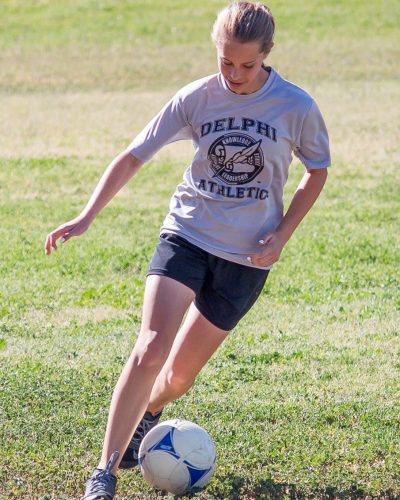HIGH SCHOOL
In addition to rounding out academic studies in literature, mathematics, writing, science, history and government, High School students gain practical understanding and experience in the subjects of leadership, integrity and logic, as well as management and organizational skills. They also become a vital element in the functioning of the school, taking on tasks of increased responsibility, requiring higher and higher levels of competence.
Our students learn to function in a professional manner, experience the value of living responsibly and gain the academic knowledge and practical skills needed to confidently and competently take the next step in life. Whether that step is into further formal education or directly into the professional world, a Delphi graduate walks forward into life with a great deal of certainty and ability.
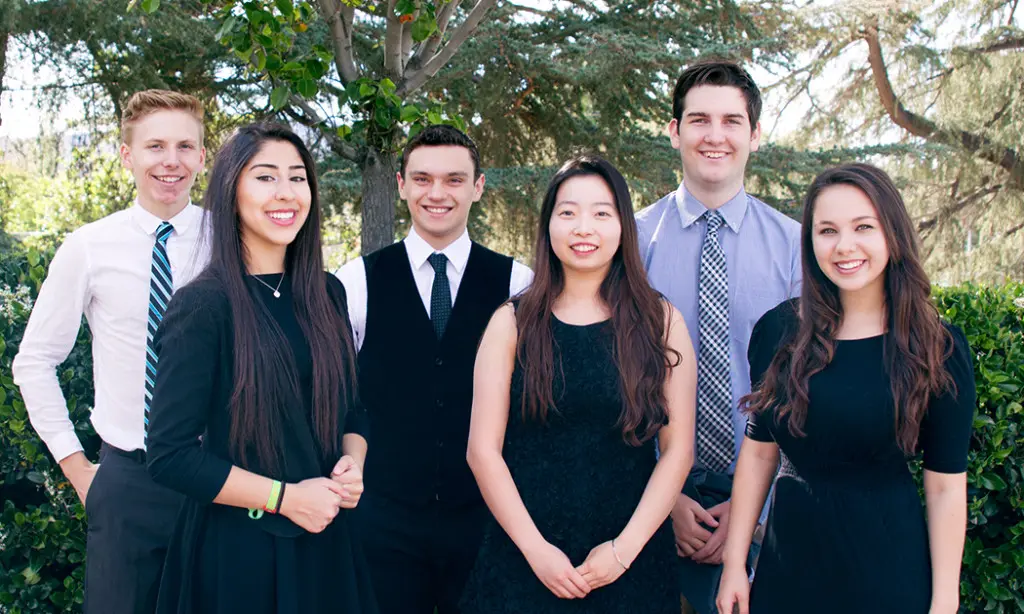
Wow!!! That’s one of the main words that comes to my mind right now. I loved every course, every book, every class, every day. This is such a great school with an amazing program!!! Each course I did was so valuable. Each book I read changed me. I am SO excited to start my senior year!!”
— High School Junior
High School Director
Dear Parents,
In the High School, students are given a tailor-made program that will set them up to pursue their goals in life.
Here the use of the study skills taught by Delphi are honed and perfected to the point where students can literally learn any subject, enabling them to be successful in further education or any career path they choose.
In addition to rounding out academic studies in literature, mathematics, writing, science, history and government, High School students get practical understanding and experience in the subjects of leadership, integrity and logic, as well as management and organizational structure. With these tools under their belt, these students become a vital element in the functioning of the school, taking on tasks of increased responsibility, requiring higher and higher levels of competence.
Delphi graduates learn to function in a professional manner, experience the value of living responsibly and gain the academic knowledge and practical skills needed to confidently and competently take the next step in life. Whether that step is into further formal education or directly into the professional world, a Delphi graduate walks forward into life with a great deal of certainty and ability.
Sincerely,
Cindy Gainsforth
Middle School and High School Director
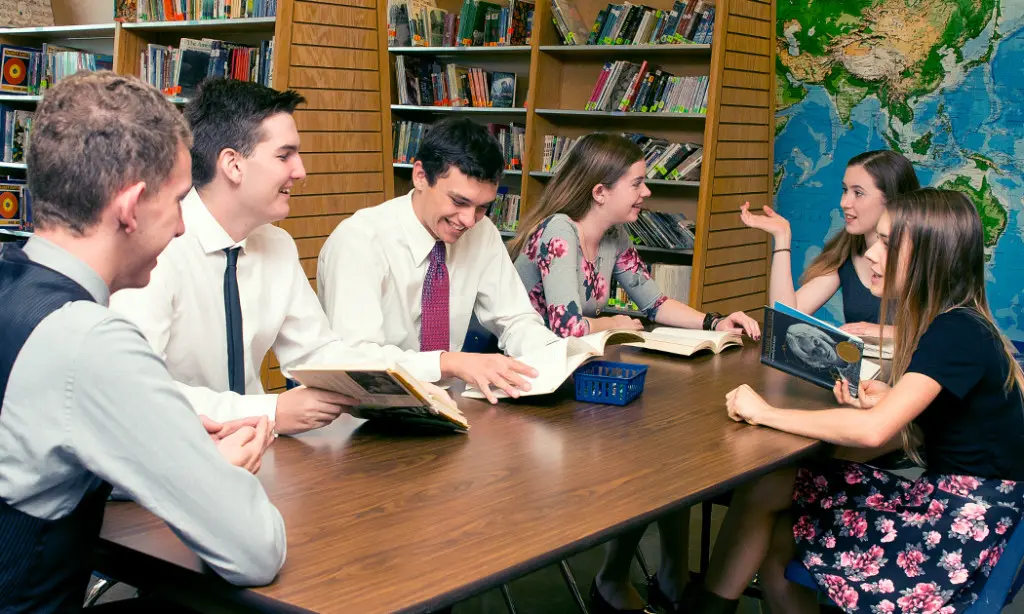
Entering Students
Graduates of Form 5 (Middle School) move directly into the High School Freshman Level. Students newly entering Delphi in the High School begin with the Freshman Entry Level, which serves to orient them to the study methods while filling in any “holes” from previous academic programs.
Academics
What Do We Learn?
In addition to rounding out academic studies in literature, mathematics, writing, science, history and government, High School students get practical understanding and experience in the subjects of leadership, integrity and logic, as well as in management and organizational structure.
High School students receive individual academic programs tailored to their academic needs as well as their goals and interests. The curriculum encourages students to apply the knowledge they’re gaining to real life situations, building critical thinking and problem-solving skills, rather than emphasizing memorization of facts or time spent in class. Students are required to demonstrate proficiency in each course of study before moving on to the next course or subject.
By their junior year, students select one of four major areas to study more intensively—Science & Technology, Humanities, Business or Fine Arts—and then focus on academic study and practical experience related to that area in addition to the standard program of required core courses.
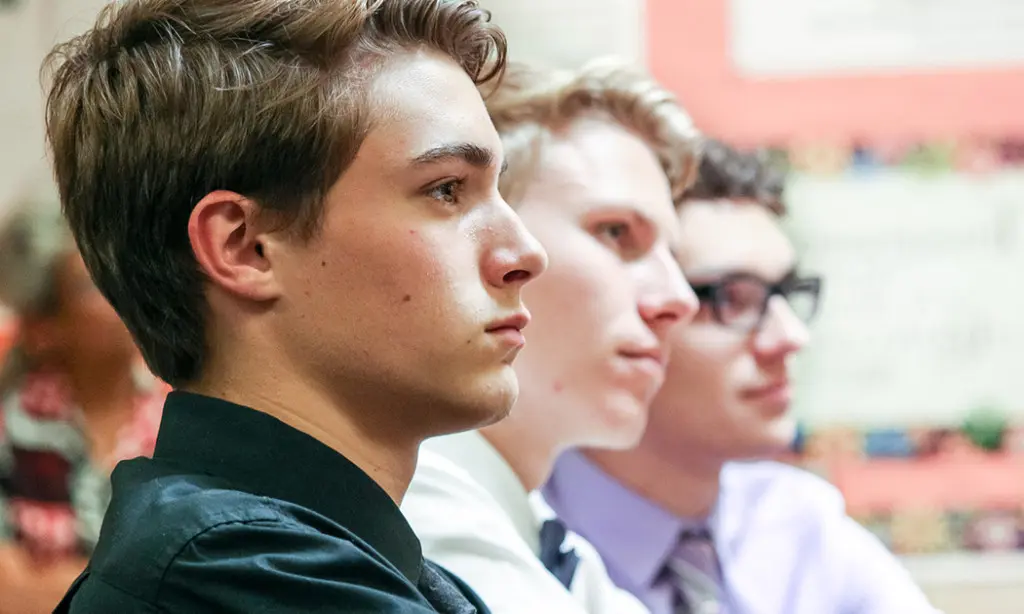
Literature
Emphasis is on reading competence and exposure to a wide range of literary works, broadening the students’ framework for understanding the culture and civilization.

Level 1
Upon completion of this reading level, students will have developed a comprehensive vocabulary and will be comfortable reading a variety of literary works. They will read an average of 5-10 books per month, selected from a list which includes biographies, autobiographies, fiction, historical fiction and nonfiction. In addition, there is a core of required books, including Charles Dickens’Great Expectations, Pearl Buck’s The Good Earth, as well as various works on Greek mythology.
Literature Seminars covering The Odyssey and Julius Caesar (or Romeo and Juliet) ensure students delve more deeply into these classic texts and are able to integrate the materials with their studies of history, government and philosophy.
Level 2 & 3
Students continue the Literature Program covering literary works that embrace philosophy, art, history, biography and science. Prior to reading each book, students engage in background research of that historical period, including relevant social and political issues, putting each novel, play or epic poem in proper context.
Extensive writing assignments while reading the book focus on evaluating the ideas and viewpoints expressed in the literary work against the historical, social and political period, as well as against one’s own experiences.
Literature Seminars focus on David Copperfield, The Merchant of Venice, Oedipus Rex, The Republic and Hamlet, as well as poetry by Shakespeare, Keats, Shelley, Frost and others.
- Level 2 Literary Works
- Far From the Madding Crowd by Thomas Hardy
- Sea Wolf by Jack London
- Atlas Shrugged by Ayn Rand
- I, Claudius by Robert Graves
- The Canterbury Tales by Geoffrey Chaucer
- The Agony and the Ecstasy by Irving Stone
- Les Miserables by Victor Hugo
- Autobiography by Ben Franklin
- Level 3 Literary Works
- Selected Dialogues of Plato by Plato
- Candide by Voltaire
- Common Sense (selections) by Thomas Paine
- Rights of Man (selections) by Thomas Paine
- Democracy in America by Alexis de Tocqueville
- A Doll’s House by Henrik Ibsen
- Pygmalion by George Bernard Shaw
- Dr. Zhivago by Boris Pasternak
- 1984 by George Orwell
- The Crucible by Arthur Miller
- Antigone by Sophocles
Mathematics & Technology
Fundamentals in High School mathematics are the focus here along with a stress on the usability of the subject data in real-world applications.
Algebra
Algebra I is the initial level of mathematics required in High School. (A firm foundation in Pre-Algebra is required and remedial study is done prior to Algebra I if needed.) Students will not only gain a thorough understanding of basic algebraic concepts and nomenclature but will become adept at practical application of these concepts in a variety of settings.
Algebra II allows students to gain a more advanced understanding of algebraic concepts and applications, including more complex systems of linear equations and inequalities, quadratic equations, translation between functions of conic sections and their graphs, complex numbers, exponential and logarithmic functions, rational algebraic functions and irrational algebraic functions.

Geometry
Geometry covers both plane and solid geometry, with an emphasis on an ability to use the data to solve real-world situations and problems. Students address the nomenclature, measurements of area and volume of 2D and 3D shapes, construction, proofs of fundamental principles, three-view drawings and calculating curved surfaces.
Advanced Math
Students interested in pursuing a career in any of the math or science fields are encouraged to take Trigonometry. In this course, students will achieve a practical understanding of the properties of trigonometric and circular functions, periodic functions, vectors and an ability to apply the previous to real-world situations.
Students interested in pursuing a career in any of the math and science fields are encouraged to take Calculus. In this course, students address the fundamental nomenclature, the theory of differential and integral calculus and an ability to apply these to solving practical problems.
Technology
Delphi’s computer and Audio/Visual labs provide students with a wide array of technology resources for use on classroom and project activities. There are over 50 computers available for students to use throughout the campus, as well as a range of audio and video equipment for multimedia projects.
All students learn basic computer usage, as well as word processing and spreadsheet applications.
Writing & Public Speaking
Level 1
At this level extensive writing is required, and great attention is paid to full application of writing basics, grammar, punctuation, spelling, etc. Students are expected to write a minimum of 2,000 words per month, with good structure and very few errors. Students will also do a course on communication skills, which is designed to aid in clear and commanding oral expression.
Level 2
At this level students are introduced to successful writing techniques on which to base the development of an excellent, vigorous, highly communicative personal writing style. A section of the course deals with formal techniques for documented research in which students learn the skills needed to develop a thesis, search online and use more advanced library references.
Upwards of 20,000 words of formal writing is completed as part of the Literature Program.
Level 3
Seniors take a course on public speaking, covering the basics of both developing and delivering a public address and requiring students to deliver several lengthy formal presentations. In another course covering communication skills, students learn how to improve situations and personal relations through good communication.
Writing standards in every subject are taken to a higher level. Students interested in developing their creative writing capabilities may take various elective courses in this area.

History, Government & Current Events
Being able to trace influential ideas through time and see the relationship between historic and current events constitutes the emphasis in this subject area.
American History
During the first year of High School, American history is covered in a series of four sections, beginning with the pre-Columbian period and continuing through modern day. Focus is placed on enabling students to understand the geographical and historical context of national current events.
World History
In the second year, students take the World History course which is broken up into three sections: ancient Egypt through the fall of the Roman Empire; the Middle Ages through the American Revolution; and the French Revolution through present day. Again, emphasis is placed on evaluating major world events in modern times with an understanding of their historical roots. As with American History, students participate in weekly Current Events Seminars requiring individual research along with group discussion.

Advanced History Topics
There are a series of three advanced sections available to students with a specific interest in history. They are research-intensive and deal with major historical ideas and developments relative to present day.
Courses are also available in Criminal and Civil Justice and World Geography for students interested in pursuing these areas.
Civics
As part of the second year program, students will study the structure and function of the federal government, including reading and gaining a thorough understanding of the founding documents—the Declaration of Independence, US Constitution and the Bill of Rights.
Current Events
The purpose of the Current Events Program is to raise the students’ awareness and activity regarding their relationships with their country and the world. The end result is students with an interest in improving the survival potential of humankind and an improved orientation to their world and the ideas that shape it.
Current Events Seminars are held weekly, often supplemented with guest speakers. Students participate in research and discussion on significant issues of the day.
Applied Philosophy & Logic
Education
Mid-way through the High School, students take a course on education—a focus on evaluating methods and practices of education. Study in this area enables students to design an educational program for themselves, or for others, based on an understanding of workable educational principles.
Through doing this course, students gain more self-determination toward their own educations. They learn the importance of understanding the purpose and use of subjects and of evaluating the data studied.

Leadership
One of the most important senior level sections in the Delphi Program is on leadership. In this area, students learn the difference between good and bad leadership, how to be an effective leader and the relation of ethics to leadership.
Involvement in activities such as Student Council and Community Service gives students practical experience in leadership and its accompanying responsibilities.
Life Skills, Ethics & Integrity
Focus is on ethics and the value of living a moral life, while developing a very high sense of integrity.
The first introduction the High School students have to the subject of Ethics is a section of the program that deals with applying integrity and ethics to one’s life, also covering common sense points for living productively and successfully. The second section on Ethics addresses precise tools one can use for decision-making, overcoming weak areas and planning toward greater ethical growth and success in various aspects of the person’s life. The final section is an apprenticeship in this area where the students have an opportunity to work under a school advisor using tools learned in this subject to help fellow students.
With a course covering Planning and Organization, students gain an understanding of how groups function and how to achieve one’s goals using planning and organization for one’s own life.
Family Education and Health
In their junior year, students will address marriage, sex, family and children, and how to create and maintain successful relationships. In their senior year, students will take a brief course on health where they will discover how to research, plan and execute their own health program for the purpose of achieving optimum health.
Business
Practical Math for Business Majors
As part of students’ initial study of mathematics in the High School, a special section in Practical Math is included on every student’s program. Practical Math primarily addresses personal finances—calculating interest rates, taxes, budgeting, etc.
Business Seminars
Throughout their tenure in the High School, students have the opportunity to attend regular seminars that focus on basic economic and business principles. Each seminar meeting typically addresses one or two specific types of businesses.
Additional Study
A wide variety of topics are offered to students interested in pursuing additional study in business. They include: the Basics of Organization; Financial Planning, Management by Statistics, Business Law, Record Keeping, Principles of Economics and Strategic Planning.

Practical Application
An education is useless unless it can be effectively applied to life outside the classroom. That’s why Delphi students spend a good part of their day in a variety of tasks that require they put what they are learning to real use. This hands-on approach takes the form of practical applications, which are included in many of the courses they study, Student Services jobs, school and club projects, as well as apprenticeships that allow students to explore career options.
Emphasis on the practical application of academics ensures that each student gets a first-hand education in thoroughness, competence, responsibility and getting a job done.
Projects
To assist in this, each High School Level has a required student-proposed project of minimum length twenty-five hours for Freshmen up to one hundred hours for Seniors. These projects can be in areas aligned with student interests and purposes, or in areas where students could benefit from increased interaction with the environment around them. It is through these projects specifically that students are expected to demonstrate teamwork and leadership skills.
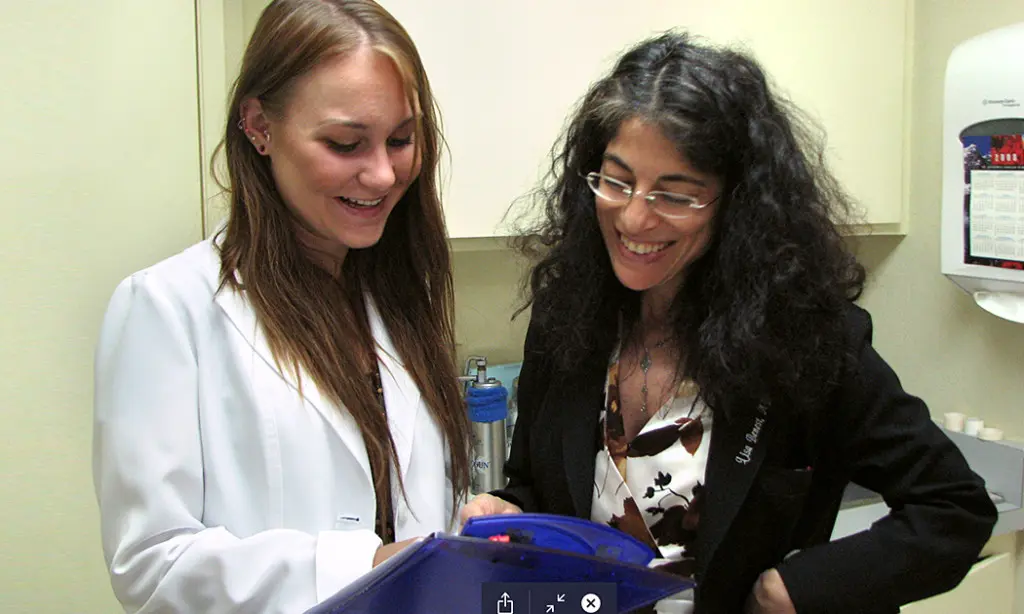
Apprenticeships
Apprenticeships are a vital part of the High School students’ programs. With all the emphasis placed on the importance of application to what they are studying, apprenticeships offer students an opportunity to gain both experience and exposure in areas of interest. The program allows the student to “test” possible career choices in a real world environment, while at the same time learning skills and knowledge from professionals in the field.
Examples of typical apprenticeships include working with companies and/or individual professionals in veterinary medicine, law enforcement, software development, film production, music production, politics and wildlife management.
High School Arts
Though art, music and theater courses are not required in the High School, all High School students are encouraged to participate in arts-related electives and the school has a tradition of high-level participation in the arts on the part of nearly all its students.

High School Sports
The High School program prides itself on hard work, discipline, sportsmanship, team spirit and fun. Throughout the year daily sports classes perfect the basics, focus on more advanced strength and conditioning exercises, drill team strategies and develop and hone leadership skills.
Graduates of the program are competent athletes who have developed a love of sports and exercise, are in good physical shape and have excellent sportsmanship.
